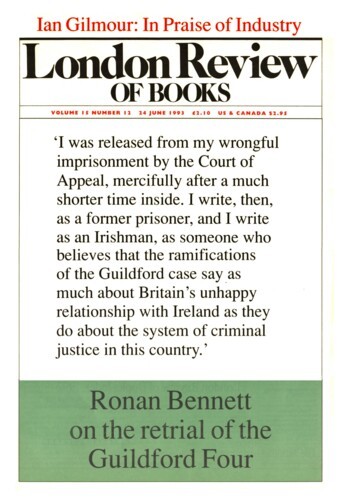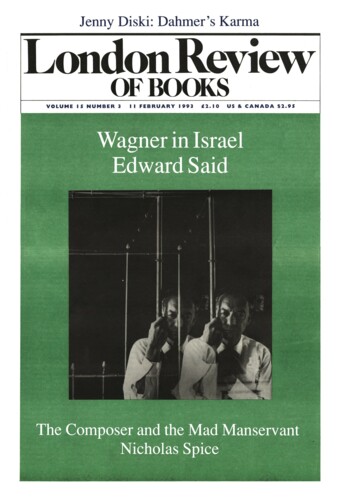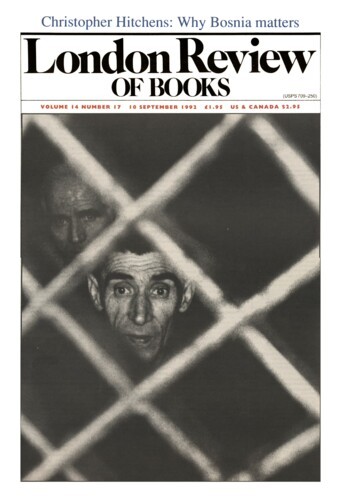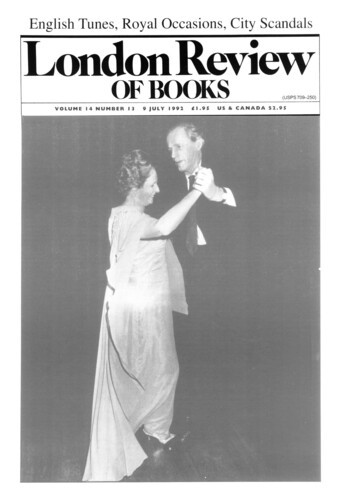Criminal Justice
Ronan Bennett, 24 June 1993
In October 1989 I was in Cuenca in southern Ecuador. Cuenca is a sleepy town, Ecuador – for reasons partly to do with climate and partly with the military’s intermittent but pointed interventions in political and economic life – a sleepy country. Once, during a presidential election, the country briefly came out of its quiescence when one of the candidates exhibited worrying signs of sun-stroke. In a television interview he began to boast about his many personal achievements; by the time he got properly into his stride he was insisting he had a better degree than his opponent, a bigger house, a more beautiful wife, taller children and – definitive proof of his fitness to govern – thicker semen. This was too much, even for Ecuadorians long used to the macho exaggerations of the Latin American stump. The electorate woke up, laughed themselves silly for a week and voted in the candidate of the inferior semen. But this was a rare high point: as a rule, it is a quiet country, a fact reflected in the headline of a newspaper I picked up in Cuenca. For reasons best known to himself, the editor had decided to splash with a story headlined, ‘Nothing Unusual Happened Today’. I remember enjoying the story, though I cannot now recall any of the detail. However, another item caught my attention and has stayed with me since: an agency story datelined Londres to the effect that the Court of Appeal had suddenly and unexpectedly freed the three men and one woman known in Britain as the Guildford Four.’




